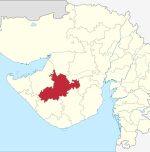Patoda: A village transformed by vision and determination

Patoda, a small village on the outskirts of Aurangabad, stands as a shining example of how determination and collective effort can bring about remarkable change.
Once plagued by drought and poverty, the village is now a model of sustainable development. It all happened due to the vision and leadership of its former sarpanch, Bhaskar Pere.
In the late 1990s, Bhaskar Pere was a farmer struggling to make ends meet in a region often hit by drought.
Determined to break the cycle of drought, crop failure, and debt, Bhaskar, along with a few like-minded villagers, decided to take matters into their own hands.
Recognizing the importance of water in the arid Marathwada region, they began by recycling sewage water for crop irrigation.
This innovative approach ensured that even during dry years, their crops survived, inspiring others in the village to join their efforts.
Bhaskar’s leadership led to his election as the sarpanch of the Patoda Gangapur Nehri Group Gram Panchayat. Under his guidance, the panchayat implemented a series of initiatives that transformed the village.
They introduced proper solid waste management, covered drainages, banned open defecation, and ensured the smooth functioning of the primary school and Anganwadi.
Tree planting campaigns were also launched, which not only improved the village’s environment but also contributed to the health and well-being of its residents.
The benefits of these efforts were soon evident. The village’s revenue increased, allowing the panchayat to offer incentives such as free flour mill services and affordable bottled drinking water to tax-paying residents.
The village’s infrastructure improved with surfaced roads, interlocking block pavements, and solar street lamps. It significantly reduced the panchayat’s power costs.
Patoda also implemented mandatory household toilets and water meters, ensuring sustainable water usage. Solar water heaters were introduced, reducing reliance on wood and preserving trees.
Clean drinking water was made available through a reverse osmosis plant, and solid waste management practices in Patoda now rival those of the best municipal corporations in the country.
Additionally, around 100 CCTV cameras provide round-the-clock security, and the village Anganwadi offers facilities comparable to top city kindergartens.
Reflecting on the village’s transformation, Bhaskar Pere attributes the success to the villagers’ cooperation and their collective decision to keep party politics out of their development efforts.
By focusing on self-reliance and community action, Patoda has become a beacon of hope, drawing attention from bureaucrats and politicians alike.
Image from Pxhere (Free for commercial use / CC0 Public Domain)
Image Published on March 16, 2017
Image Reference: https://pxhere.com/en/photo/1164023










Leave a Reply